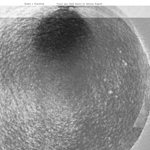|
|
 |
Dusted Reviews
Artist: Ursula Bogner Album: Sonne = Blackbox Label: Faitiche Review date: Feb. 1, 2012 |

|
|
|
 |
Ursula Bogner is a hoax. There is no such woman; she never existed and Sonne = Black Box is not a plausible posthumous collection of her songs, spanning 1971-1985. Rather, this is an elaborate conceptual art project by experimental sound artist Jan Jelinek, and was likely recorded last year. The “hoax” is that Ursula Bogner was an unassuming German pharmacist who recorded reel-to-reel tape loops in her spare time — beginning in the late ‘60s — stockpiling a collection of tapes that were only recently discovered by Jelinek.
Part of this project is the notion of “fakeness” in art, which an accompanying 125-page book attempts to explain. There are essays and email Q&A’s by Kiwi Menrath, Jürgen Fischer and Bettina Klein for your reading pleasure, even one entitled, “Inside every synthetic man there’s an electronic woman.” Through tackling various angles of looking at anonymity, as well as providing — self-referentially — insight into the “life of Bogner,” a well-rounded conceptual art experience is presented. But if you’re like me, and are more interested in the sounds themselves over accompanying chin-scratch essays, there’s still some interesting music to be heard.
The collected works here show a new side of Jelinek’s Bogner, differing from Recordings 1969-1988‘s restrained, quieter tour through quirky, simple loops. Sonne is more ambitious, full of complex editing, increased multi-tracking and lilting vocal samples. Songs like “Perautationen” and “Strahlungen” showcase an array of bleeps and bloops panning across the stereo field, with a detached German woman delivering short, ominous phrases. Other pieces interweave synchronous vocal loops playing backward and forward over top droning synth tones, not unlike Tom Recchion’s tape loops on Chaotica.
The analogue depth to these recordings is incredibly resonant and easy on the ears — reverb and tape echo adds even more dimension to get lost in. Jelinek mitigates potential tedium—since these are basically just loops—by scaling song-lengths to an average of 2:30 each, which seems to be the magic number for maintaining attention through what can be challenging music. Indeed, he flexes his IDM muscle throughout, informing the wild sonic maneuvering heard on “Jubiläux” and jerky stop-start torment of “Trabant.” It’s difficult to imagine Jelinek hearing these types of deranged sounds in his head, and then translating them onto tape, so I’m betting there were some happy accidents central to the process.
Perhaps Jelinek has some feminist leanings, and even felt it romantic to rewrite history, placing his own character next to experimental audio heroines like Eliane Radigue, Delia Derbyshire and Daphne Oram. Or maybe he knew that a record working within this anachronistic framework would get less attention minus the cheeky backstory. Yet, despite all of the artistic strategy on display, I can’t help the nagging feeling of indifference -- my curiosity in Bogner begins and ends during Sonne = Blackbox‘s 35 minutes.
By Jon Dempsey
|







